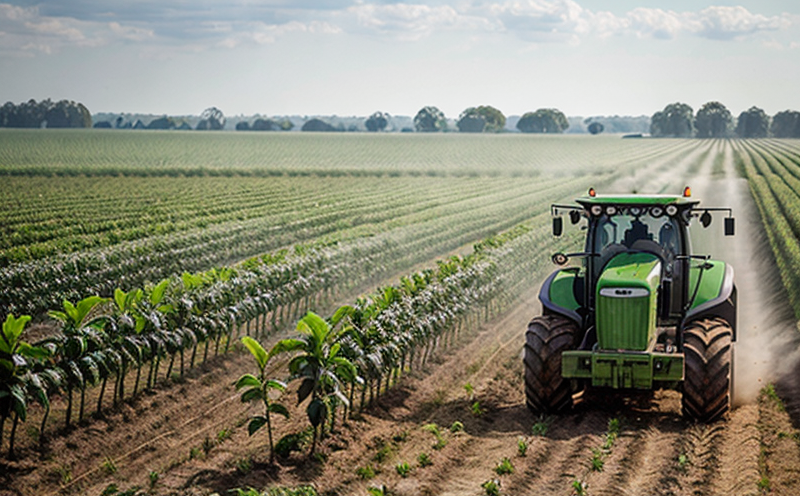ISO 16140 Microbial Contaminant Testing in Agricultural Chemicals
The ISO 16140 series of standards is pivotal for ensuring the safety and quality of agricultural chemicals. This service focuses on microbial contaminant testing, a critical step to prevent contamination that could compromise product efficacy or pose risks to human health and the environment.
Microbial contaminants in agricultural chemicals can lead to various issues such as reduced shelf-life, decreased efficacy, and potential hazards during application. By adhering to ISO 16140 standards, laboratories ensure that products meet stringent safety requirements before they reach the market.
The testing process involves several steps: sample collection, preparation, inoculation with specific microorganisms, incubation, and finally, identification of any microbial growth. This ensures accurate quantification and qualitative analysis of potential contaminants.
Our service uses advanced microbiological techniques to ensure precision and reliability. We employ state-of-the-art equipment like high-resolution microscopes and automated culture systems. These tools allow for detailed observation and quantification, which is crucial for compliance with the ISO standards.
The testing process is not only about identifying contaminants but also about understanding their potential impact on the chemical's effectiveness and stability. This information is vital for manufacturers to make informed decisions regarding product formulation and storage conditions.
In addition to standard testing, we offer comprehensive consulting services tailored to our clients' needs. Our experts can provide insights into best practices for sample handling, storage, and analysis to ensure consistent results across batches and over time.
Applied Standards
| Standard | Description |
|---|---|
| ISO 16140-1:2015 | Microbiological examination of plant protection products and similar materials - Part 1: General principles and procedures for microbiological examinations. |
| ISO 16140-3:2018 | Microbiological examination of plant protection products and similar materials - Part 3: Examination for the presence of Salmonella spp. in liquid plant protection products. |
Benefits
- Ensures compliance with international standards, enhancing product reputation and market access.
- Avoids legal issues related to non-compliance, protecting the brand's integrity.
- Reduces risks associated with microbial contamination, ensuring safer products for users.
- Improves product quality by identifying and eliminating potential contaminants early in the manufacturing process.
Customer Impact and Satisfaction
- Increased confidence in product safety, leading to higher customer satisfaction.
- Better regulatory compliance, which can improve business relationships with partners and clients.
- Reduced risk of recalls and associated costs, contributing to long-term profitability.
- Enhanced reputation among industry peers and consumers, attracting more customers.





